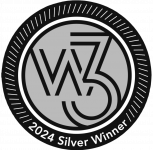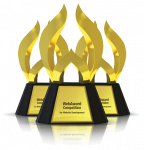Conference Schedule
All Upcoming Events
Below is a full list of upcoming PELS-sponsored events. For more information, please check the event’s website by clicking the event name.
PELS-Sponsored Conferences
View what conferences are co-sponsored by PELS at various international locations.
Filter: RESULTS ARE FILTERED
| Event | Date | Location | Sponsorship | Format |
|---|---|---|---|---|
| 2025 IEEE 5th International Conference on Sustainable Energy and Future Electric Transportation (SEFET) | Jaipur, India | |||
| 2025 IEEE International Future Energy Challenge (IFEC) | Tauyuan, Taiwan | |||
| 2025 IEEE Workshop on Power Electronics for Aerospace Applications (PEASA) | Glasgow, United Kingdom | |||
| 2025 IEEE Electric Ship Technologies Symposium (ESTS) | Alexandria, Virginia, USA | |||
| 2025 IEEE Workshop on Wide Bandgap Power Devices and Applications in Asia (WiPDA Asia) | Beijing, China | |||
| 2025 IEEE 12th International Symposium on Sensorless Control for Electrical Drives (SLED) | Harbin, China | |||
| 2025 Zhejiang Power Electronics Conference (ZPEC) | Hangzhou, China | |||
| 2025 IEEE Symposium on Diagnostics for Electric Machines, Power Electronics and Drives (SDEMPED) | Dallas, Texas, USA | |||
| 2025 17th International Seminar on Power Semiconductors (ISPS) | Prague, Czech Republic | |||
| 2025 Energy Conversion Congress & Expo Europe (ECCE Europe) | Birmingham, United Kingdom | |||
| 2025 International Workshop on Power Supply on Chip (PwrSoC) | Seoul, Korea (South) | |||
| 2025 IEEE Conference on Power Electronics and Renewable Energy (CPERE) | Aswan, Egypt | |||
| 2025 IEEE 10th Workshop on the Electronic Grid (eGRID) | Glasgow, United Kingdom | |||
| 2025 Brazilian Power Electronics Conference (COBEP) | Vitoria, Brazil | |||
| 2025 23rd International Symposium on Power Electronics (Ee) | NoviSad, Serbia | |||
| 2025 IEEE International Communications Energy Conference (INTELEC) | Houstin, Texas, USA | |||
| 2025 IEEE Energy Conversion Conference Congress and Exposition (ECCE) | Philadelphia, Pennsylvania, USA | |||
| 2025 IEEE 3rd International Power Electronics and Application Symposium (PEAS) | Shenzhen, China | |||
| 2025 IEEE 12th Workshop on Wide Bandgap Power Devices and Applications (WiPDA) | Fayetteville, Arkansas, USA | |||
| 2025 IEEE Design Methodologies Conference (DMC) | Fayetteville, Arkansas, USA | |||
| 2025 International Future Energy Electronics Conference (IFEEC) | Bali, Indonesia | |||
| 2025 IEEE Transportation Electrification Conference and Expo, Asia-Pacific (ITEC Asia-Pacific) | , Singapore | |||
| 2025 IEEE 10th Southern Power Electronics Conference (SPEC) | Johannesburg, South Africa | |||
| 2025 IEEE International Conference on Energy Technologies for Future Grids (ETFG) | Wollongong, Australia | |||
| 2025 IEEE 4th International Conference on Smart Technologies for Power, Energy and Control (STPEC) | Goa, India | |||
| 2025 12th National Power Electronics Conference (NPEC) | Kozhikode, India | |||
| 2025 IEEE International Conference on Power Electronics, Smart Grid, and Renewable Energy (PESGRE) | Dharwad, India | |||
| 2026 IEEE Texas Power and Energy Conference (TPEC) | College Station, Texas, USA | |||
| 2026 IEEE Applied Power Electronics Conference and Exposition (APEC) | San Antonio, Texas, USA | |||
| 2026 International Power Electronics Conference (IPEC-Nagasaki 2026- ECCE Asia) | Nagasaki, Japan | |||
| 2026 IEEE Transportation Electrification Conference & Expo (ITEC) | Novi, Michigan, USA | |||
| 2026 IEEE Eighth International Conference on DC Microgrids (ICDCM) | Xi'an, China | |||
| 2026 IEEE 17th International Symposium on Power Electronics for Distributed Generation Systems (PEDG) | Vina del Mar, Chile | |||
| 2026 IEEE Workshop on Power Electronics for Aerospace Applications in Asia (PEASA-Asia) | Xi'an, China | |||
| 2026 Energy Conversion Congress & Expo Europe (ECCE Europe) | Valencia, Spain | |||
| 2026 IEEE Energy Conversion Congress and Exposition (ECCE) | Vancouver, British Columbia, Canada | |||
| 2026 IEEE Power Electronics Society International Decentralized Energy Access Symposium (IDEAS) | Amman, Jordan | |||
| 2026 IEEE 13th Workshop on Wide Bandgap Power Devices and Applications (WiPDA) | Burlington, Vermont, USA | |||
| 2027 IEEE Applied Power Electronics Conference and Exposition (APEC) | New Orleans, Louisiana, USA | |||
| 2027 IEEE 18th International Symposium on Power Electronics for Distributed Generation Systems (PEDG) | Edmonton, Alberta, Canada | |||
| 2027 IEEE 27th Workshop on Control and Modeling for Power Electronics (COMPEL) | Austin, Texas, USA | |||
| 2027 IEEE Energy Conversion Congress & Exposition (ECCE) | Providence, Rhode Island, USA | |||
| 2028 IEEE Applied Power Electronics Conference and Exposition (APEC) | New Orleans, Louisiana, USA | |||
| 2029 IEEE Applied Power Electronics Conference and Exposition (APEC) | , District of Columbia, USA | |||
| 2030 IEEE Applied Power Electronics Conference and Exposition (APEC) | Portland, Oregon, USA | |||
| NO RESULTS | ||||




